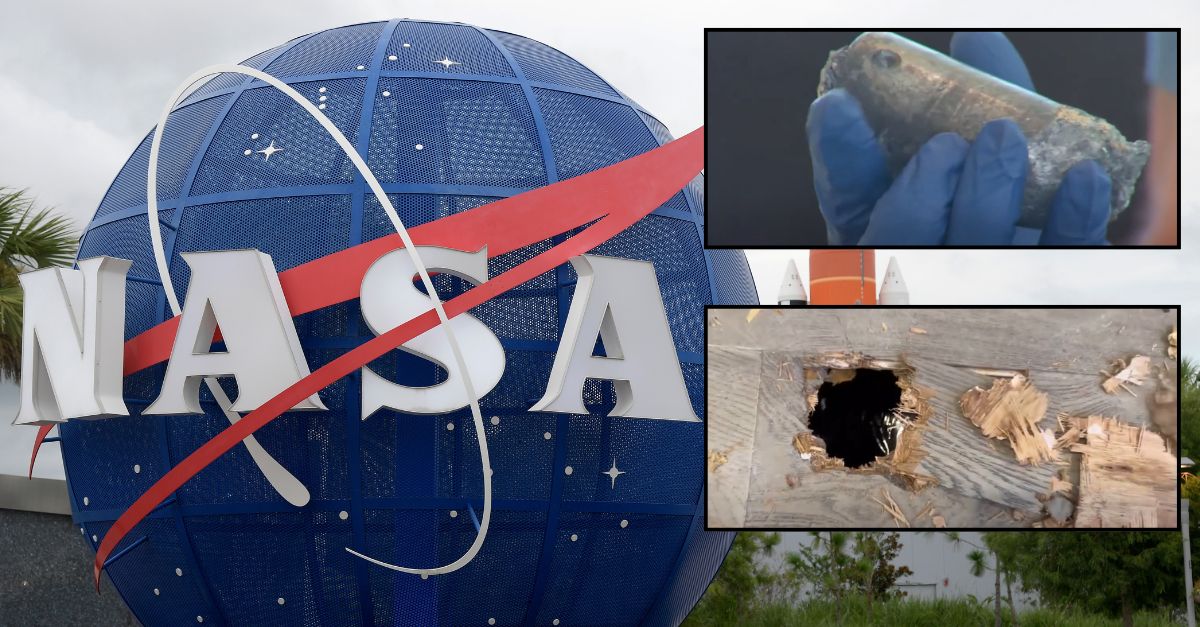
Background: Entrance to the NASA Kennedy Space Center Visitor Complex. July 29, 2018, Cape Canaveral, Florida. (Phelan M. Ebenhack via AP). Inset top left: A discarded battery from the International Space Station. Inset bottom right: A hole in the floor of the Otero home in Florida where NASA confirmed debris from space crashed through the home’s roof and subflooring (YouTube/KHOU).
A family in Florida says it has filed a claim against NASA after a hunk of space junk rocketed through the roof and subflooring of their home this spring.
The debris was confirmed by NASA to be a 1.6-pound stanchion comprised of nickel-chromium. The stanchion essentially held a battery in place to a cargo pallet that weighed nearly 6,000 pounds. It is roughly 4 inches long and 2 inches wide. It was meant to burn up in the atmosphere when it was released by the International Space Station on March 8, but did not.
An attorney representing Alejandro Otero from firm Cranfill Sumner LLP issued a statement about the lawsuit on June 21 saying that the Otero’s son was in the house when the debris came plummeting through their Naples home.
The family is in the process of making a formal claim against NASA and under the Federal Tort Claims Act, the space agency has six months to reply.
The Otero’s attorney Mica Nguyen Worthy said the family is grateful this was just a “near-miss” but they are seeking compensation for the physical and emotional damages of the jarring event.
“If the debris had hit a few feet in another direction, there could have been serious injury or a fatality,” she said.
Worthy stressed that the claim is also about establishing the how the public can respond to the consequences of space debris in low orbit:
If the incident had happened overseas, and someone in another country were damaged by the same space debris as in the Oteros’ case, the U.S. would have been absolutely liable to pay for those damages under the Convention on International Liability for Damage Caused by Space Objects also known as the ‘Space Liability Convention.” We have asked NASA not to apply a different standard towards U.S. citizens or residents, but instead to take care of the Oteros and make them whole.
Here, the U.S. government, through NASA, has an opportunity to set the standard or ‘set a precedent’ as to what responsible, safe, and sustainable space operations ought to look like. If NASA were to take the position that the Oteros’ claims should be paid in full, it would send a strong signal to both other governments and private industries that such victims should be compensated regardless of fault.
A spokesperson for Worthy told Law&Crime she was not permitted to share a copy of the claim.
Have a tip we should know? [email protected]




